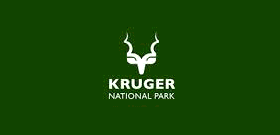 September Safari Season: Kruger's Peak Wildlife Viewing Delivers Premium Bookings
September Safari Season: Kruger's Peak Wildlife Viewing Delivers Premium Bookings
The spring transition period in Kruger National Park presents African tourism professionals with exceptional opportunities to capitalize on one of the continent's most sought-after safari experiences. September emerges as a standout month when wildlife viewing reaches its zenith, offering travel specialists compelling selling points that distinguish this period from other seasonal offerings across the region.
As South Africa's premier wildlife destination shakes off winter's grip, the park transforms into a wildlife viewing paradise that rivals East Africa's Great Migration spectacles. The transitional weather patterns create optimal conditions where daytime temperatures hover around 28°C while crisp mornings at 12°C provide comfortable game drive experiences. This temperature differential becomes a crucial selling point for operators targeting clients seeking comfortable safari conditions without the extreme heat of summer months.
The landscape's transformation during September offers unparalleled visibility advantages that seasoned safari operators recognize as premium selling opportunities. Sparse vegetation and leafless trees create natural amphitheaters where wildlife sightings become predictable rather than opportunistic. Seasonal water sources remain largely dry, forcing animals to concentrate around permanent rivers and constructed waterholes, effectively creating natural wildlife theaters that guarantee memorable client experiences.
Recent accommodation data reveals fascinating market dynamics that savvy operators should leverage. Rest camps maintain the highest occupancy rates at 84.2 percent, while luxury private lodges command premium pricing averaging R9,605 per night despite lower occupancy at 72.1 percent. This pricing structure creates opportunities for operators to position different accommodation categories strategically based on client budgets and expectations.
The park's infrastructure developments for 2025-2026 signal significant enhancements that strengthen its competitive position against other African destinations. Masiya's Camp at Royal Malewane opened in June 2025, introducing luxury tented accommodations that honor master tracker Wilson Masiya's legacy. This addition represents the growing trend toward conservation-focused luxury experiences that appeal to discerning international clientele.
Wildlife behavior patterns during September create dramatic predator-prey interactions that form the cornerstone of memorable safari narratives. Water scarcity weakens prey animals while concentrating them around reliable water sources, creating natural stages for intense wildlife drama. Lions and hyenas capitalize on these conditions, while elephants demonstrate fascinating subsurface water-digging behaviors that provide unique photographic opportunities for clients.
The return of migratory bird species adds another dimension to September's appeal, with European bee-eaters and yellow-billed kites enhancing the park's biodiversity showcase. This seasonal phenomenon appeals particularly to specialized birding groups and photography enthusiasts, expanding potential market segments beyond traditional Big Five seekers.
Strategic positioning against competitive destinations becomes crucial during September's peak season. While Kenya's Masai Mara offers Great Migration river crossings and Botswana's Okavango Delta provides water-based safari experiences, Kruger's accessibility and infrastructure advantages create compelling value propositions. The park's proximity to Johannesburg, malaria-free southern regions, and self-drive options appeal to diverse market segments that other destinations cannot easily accommodate.
Conservation initiatives currently underway enhance the park's long-term sustainability credentials, addressing growing client concerns about responsible tourism. Anti-poaching units utilizing drone technology and infrared cameras demonstrate active wildlife protection efforts, while community engagement programs showcase positive local impact. These initiatives provide powerful storytelling elements that resonate with environmentally conscious travelers.
Booking trends indicate strong advance reservations despite early 2025 starting approximately 10 percent below previous year levels. However, forward bookings for peak periods remain robust, suggesting continued high demand for quality safari experiences. Tour operators now handle 55 percent of all safari bookings, reflecting the growing complexity of safari logistics and the value clients place on professional expertise.
Pricing strategies reveal interesting market dynamics across accommodation categories. Bush lodges experienced 11.7 percent price increases between 2023 and 2025, while luxury private lodges saw 11.2 percent growth. These consistent pricing trends across categories suggest strong underlying demand and provide operators with predictable cost structures for package development.
The park's visitor statistics approaching two million annually reinforce its position as Africa's most visited national park. This volume creates both opportunities and challenges for operators, requiring strategic timing and advanced planning to optimize client experiences while managing capacity constraints during peak periods.
Regional integration opportunities emerge through September's timing, allowing operators to combine Kruger experiences with complementary destinations. Namaqualand's wildflower season and the Drakensberg's mountain experiences create natural circuit possibilities that extend client stays and increase per-visitor revenue potential.
The central and southern regions around Skukuza, Satara, and Lower Sabie offer higher game densities and superior road infrastructure, making them ideal for first-time visitors and self-drive clients. These areas provide operators with reliable wildlife viewing opportunities that minimize client disappointment risks while maximizing satisfaction levels.
September's position within South Africa's school holiday calendar creates both opportunities and operational considerations. Early September offers quieter experiences for clients seeking exclusive wildlife encounters, while late September's increased activity levels appeal to families and groups comfortable with busier environments.
The month's unique combination of optimal weather conditions, peak wildlife activity, and infrastructure accessibility positions Kruger as a premium September destination that can command higher margins while delivering exceptional client satisfaction. For African tourism professionals, September represents a golden opportunity to showcase the continent's wildlife heritage while building sustainable business relationships that extend far beyond single safari experiences.
